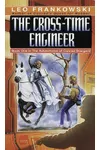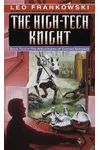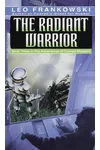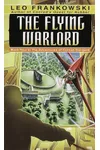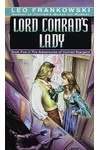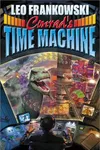Step into the thrilling world of Adventures of Conrad Stargard, where a modern engineer rewrites medieval history with a dash of wit and a lot of ingenuity! This time-travel saga by Leo Frankowski follows Conrad Schwartz, a Polish engineer hurled back to 13th-century Poland, tasked with saving the nation from the looming Mongol invasion. Blending alternate history, science fiction, and a touch of swashbuckling adventure, this series is a hidden gem for fans of epic what-if tales.
With its unique mix of historical detail, technological innovation, and a hero who’s equal parts brain and bravado, Adventures of Conrad Stargard offers a rollicking ride through a reimagined past. Ready to see Poland transformed into a 13th-century superpower? Let’s dive in!
How Adventures of Conrad Stargard Began
Leo Frankowski, a Polish-American engineer turned author, launched the Adventures of Conrad Stargard series in 1986 with The Cross-Time Engineer. Drawing on his engineering background and love for Polish history, Frankowski crafted a story that married technical know-how with time-travel fantasy. The series was born from a desire to explore how modern knowledge could reshape a medieval world, inspired by classics like Mark Twain’s A Connecticut Yankee in King Arthur’s Court but with a distinctly Polish flair. Published by Del Rey Books, the series quickly gained a cult following for its bold premise and Frankowski’s unapologetic storytelling.
The Heart of Adventures of Conrad Stargard
The series kicks off with The Cross-Time Engineer, where Conrad Schwartz, after a drunken mishap with a time machine, lands in 1231 Poland. Knowing the Mongols will invade in a decade, he sets out to industrialize the country, introducing steam engines, universal education, and even a medieval version of a Playboy Club. In The High-Tech Knight, Conrad’s efforts intensify as he knights vassals, builds cities, and faces the Inquisition’s scrutiny. The Radiant Warrior sees him training a 150,000-strong army using 20th-century tactics, while The Flying Warlord brings the climactic Mongol showdown, with Conrad’s innovations—think riverboat navies and primitive aircraft—stealing the show.
Themes of ingenuity, cultural clash, and resilience run deep. Conrad’s socialism and devout Catholicism, deliberately crafted to contrast Frankowski’s views, spark tension with medieval norms, while his technological leaps disrupt 13th-century society. The series’ style is fast-paced and unpolished, prioritizing plot and ideas over prose finesse. Its setting—vividly depicted medieval Poland—grounds the fantastical elements, making Conrad’s achievements feel both plausible and exhilarating.
Why Adventures of Conrad Stargard Resonates
Adventures of Conrad Stargard carved a niche in alternate history and time-travel fiction, appealing to readers who love speculating about history’s turning points. Fans praise its blend of technical detail and escapist fun, with reviewers likening Conrad to a Polish Harry Flashman for his charm and audacity. Though criticized for its Mary Sue protagonist and occasional political incorrectness, the series’ bold vision of a technologically advanced Poland inspired a loyal following. Its influence lingers in how it celebrates human ingenuity and the power of knowledge to reshape destiny, making it a must-read for alternate history buffs.
- First Book Published: 1986 (The Cross-Time Engineer)
- Total Books: 8, including companion novels
- Publishers: Del Rey Books, later Baen Books
- Notable Praise: Reviewed by Booklist, Publisher’s Weekly, and Library Journal
Ready to join Conrad’s crusade to save medieval Poland? Grab The Cross-Time Engineer and dive into the Adventures of Conrad Stargard’s thrilling alternate history!
